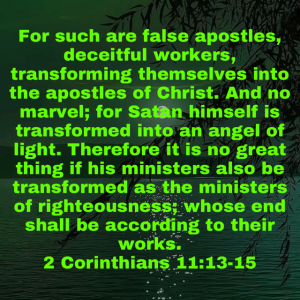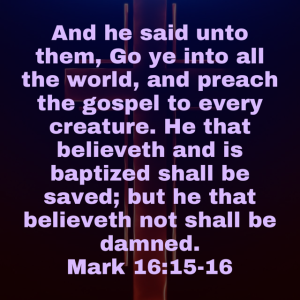More on “Virgin Birth”
By ‘virgin birth’ Protestants generally mean ‘virginal conception’. Roman Catholicism and Orthodoxy believe also in a literal virgin birth, whereby the baby passed out of Mary’s body in such a way as to leave her virginity anatomically unimpaired (virginity in partu, ‘in giving birth’, as well as ante partum, ‘before …’). This belief is found first in writings of Syrian origin from the mid-2nd century, such as the Protevangelium of James. It quickly became a standard part of the doctrine of Mary’s ‘perpetual virginity’, i.e. including also virginity post partum, ‘after giving birth’ to Jesus (so that *‘the brethren of the Lord’ could not have been Mary’s children). The Reformers were virtually unanimous in holding to Mary’s perpetual virginity. This article will follow common practice in using ‘virgin birth’ to denote virginal conception.
The two accounts of the birth of Jesus in Matthew and Luke are clearly independent of one another, and both record that he was born through the direct action of the Holy Spirit, without a human father (Mt. 1:18–25; Lk. 1:34). So the only two gospels that record the circumstances of Jesus’ birth present him as born from a virgin—although greater stress falls on conception by the Spirit than on Mary’s virginity.
Yet the historicity of the virgin birth is doubted or denied by many scholars, who often regard the birth-narratives in Matthew and Luke not as historical record but as some form of imaginative literature, expressing the significance of Jesus’ birth in symbolic, poetic, mythical or midrashic terms. The absence of explicit reference to the virgin birth elsewhere in the NT, especially Mark and Paul, is held to confirm that it was not part of the earliest traditions about Jesus.
However there may well be supporting evidence in the rest of the NT. Although a person may not say directly what he believes, he shows his belief by a turn of phrase. Thus Mark has no birth narrative, since he starts where the preachers in Acts start, namely, with the baptism by John. Yet in 6:3 he alone of the Synoptists quotes objectors as saying, ‘Is not this the carpenter, the son of Mary?’ By contrast Mt. 13:55 has ‘the carpenter’s son’, and Lk. 4:22 ‘Joseph’s son’. Identifying a son by his mother was highly unusual, and perhaps disparaging, in a Jewish context.
John also begins Christ’s earthly ministry with the Baptist. Later he indicates that there were rumours about the illegitimacy of Jesus when in 8:41 the Jews declared, ‘We (emphatic pronoun and emphatic position) were not born of fornication’. Less evidential, although accepted by some Christian writers from Tertullian onwards, is the reading in the Verona Latin codex on Jn. 1:13, which has the singular, ‘who was born not of blood, nor of the will of the flesh, but of God’. (This reading is not attested in any Gk. MS.)
Paul, the companion of Luke, uses language that implies acceptance of the virgin birth. When he speaks of the coming, or birth, of Jesus Christ, he uses the general verb, ginomai, not gennao, which tends to associate the husband (e.g. Rom. 1:3; Phil. 2:7). This is particularly marked in Gal. 4:4, where ‘God sent forth his Son, coming (genomenon) from a woman’. By contrast, in 4:23 Ishmael ‘was born’, gegennētai (from gennao).
There is no evidence that a virgin birth was part of Jewish Messianic expectations. Is. 7:14 is not specific enough to have given rise to such a belief; its use by Matthew presupposes the prior existence of such a conviction about Jesus’ birth. Nor do pagan stories of gods in human form impregnating women provide a credible source for the gospels’ account. Matthew and Luke do not present Mary as impregnated by the Holy Spirit—as though Jesus had a human mother and a divine father—but as conceiving miraculously without male intervention at all.
Theologically it has been argued that the reason given for the title ‘the Son of God’ in Lk. 1:35 cannot be reconciled with the idea of the eternal Son of God of the epistles. This argument assumes that Mary and Joseph would have been given a full theological statement. The two records give the contents of what they were told, namely, that Mary was to be the mother of the promised Messiah, the Son of God and ‘God with us’. The fact that Matthew and Luke do not here reflect later theology is a further argument for the authenticity of their records.
Theologically it is also commonly alleged that someone born of only one parent could not truly be said to share our real humanity. This objection misses the significance of a proper concentration on conception. From that point onwards, there are no grounds for seeing Jesus’ birth as other than wholly normal. (The objection also sounds increasingly weak in the light of modern medical techniques to facilitate child-bearing.)
A general prejudice against the miraculous in general and the incarnation in particular, often animates denial of the virgin birth. Yet it is wonderfully congruent with the much more fundamental truth of the incarnation itself. To hold to the latter as Christian faith has traditionally believed in it, while rejecting the former, is rather like straining out a gnat while swallowing a camel. Although theologians have given different interpretations of Jesus’ birth from a virgin, it at least attests that the entry of God’s Son fully into human life was a gift of divine initiative, a new beginning independent of normal male action. The start of the new creation is God’s fiat, grounded in his grace alone.
D. F. Wright and .J. S. Wright, “Virgin Birth,” in New Bible Dictionary



